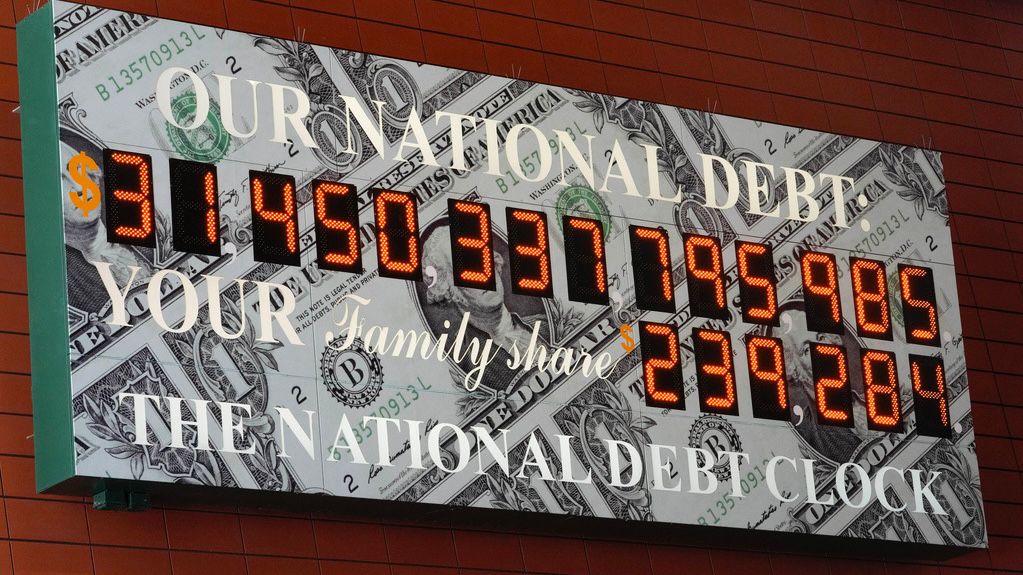The federal deficit is expected to grow by 63% over the next ten years, according to new projections from the Congressional Budget Office released Wednesday.
The U.S. budget deficit is projected to increase from $1.6 trillion this year to $2.6 trillion in 2034.
In ten years, the level of debt held by the public relative to the nation's gross domestic product will reach 116% — the highest level in the country’s history, the CBO said. The increase in debt over the coming decade will largely be driven by increases in mandatory spending and interest costs. If the current trend continues, the CBO said the federal debt will climb to 172% of GDP by 2054.
Federal outlays from 2024 through 2028 are expected to be $6.5 trillion annually but will increase after that as the government spends more on mandatory programs for elderly Americans and pays more in interest costs.
Revenues are expected to hold steady at about $4.9 trillion annually through 2034. The majority of revenue will derive from individual income taxes, followed by payroll taxes and corporate income taxes.
The economy last year outperformed the CBO’s initial 2023 projections. For 2024, the CBO also revised downward its unemployment rate forecast.
The CBO expects economic growth in 2024 to be slower than in 2023, as unemployment increases and inflation cools. The federal economic information agency expects inflation to cool “to a rate roughly in line with the Federal Reserve’s long-run goal of 2%” this year, before ticking up in 2025. It expects unemployment to rise to 4.4% by the end of 2024.
The agency also expects the Federal Reserve to reduce interest rates starting in the second quarter of 2024. That will fuel a rebound in economic growth in 2025. The CBO expects consumer spending to continue its shift from goods to services through 2030.
The CBO said an immigration surge that began last year will continue until 2026 and will expand the U.S. labor force and the nation’s economic output. Increased immigration by people in their prime working years of 25 to 54 years of age will offset the nation’s decline in labor force participation among non-immigrants.
“Today’s report provides further evidence of economic strength and deficit reduction under President Biden," White House spokesperson Michael Kikukawa said in a statement. "The economy continues to grow faster than forecast as inflation continues to fall, while the deficit is projected to be lower over the next decade than CBO last projected."
The annual deficit in 2024 is projected to be $1 trillion less than when President Biden first took office in 2021 and will be $1.6 trillion less over the next ten years compared with the CBO’s projection in May 2023.
Kikukawa said President Biden’s policies could reduce the deficit even more by making the wealthy and big corporations pay their fair share and cutting wasteful spending on special interests.
The deficit estimates come less than a month after the House and Senate passed a short-term federal spending bill to keep the government operating through the end of February and avoid a partial government shutdown. House Republicans have demanded budget cuts to certain discretionary programs since they took the majority in early 2023.



